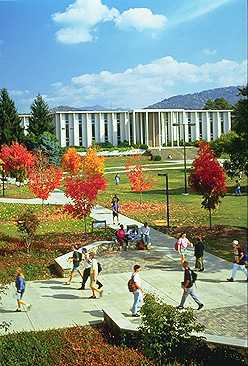Introduction
Located in the southwestern corner of the state, the University of North Carolina at Asheville is located in the city of the same name, within Buncombe County. Also known as UNC Asheville or simply UNCA, it is the only one of the 16 institutions making up the University of North Carolina system to be designated as a liberal arts institution; it is a member of the national Council of Public Liberal Arts Colleges.
Established in 1927, the school was originally known as the Buncombe County Junior College; after several changes in name and jurisdiction, by 1969 it adopted its current name, having granted the first bachelor’s degree three years earlier.


